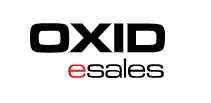… Roland Fesenmayr — Managing Director Oxid eSales AG on digitalization
1. 30 years ago, digitalization made its way into industry and the economy. Why has digitalisation only become a hype topic in recent years?
The topic of digitization was perhaps a hype at the beginning. And how it feels with these buzz topics, you wait to see if it really gets through. Many companies, especially medium-sized enterprises, may have hesitated for too long. Because now it is an existential issue and no longer a hype.
The urge or compulsion to digitize arises from the rapid technological development in all areas of life. Where many consumers willingly follow every trend, think of the triumph of the smartphone and the resulting benefits in everyday life, companies are struggling to bring established processes into the digital age. It is not only those who are shy about tackling the issue for cost and resource reasons. Companies often sit in front of the queue like rabbits and don’t know how to tackle it. And there is no going back from that. It is precisely the global players who have already divided the market among themselves. Those who have not yet begun to digitize must fear being left behind.
2. There are still some sectors in which digitalisation obviously plays no or only a minor role. For example, the construction and real estate sector or the food industry. Isn’t digitization suitable for everything and everyone?
Digitisation will definitely be gaining ground in all sectors. Some are a bit more advanced here, others are lagging behind. But we see that it is precisely in the supposedly more traditional and less digitally affinity industries that are catching up rapidly. In the online food market or in the construction industry, new concepts are increasingly emerging that have the potential to transform the respective market. There is no industry that does not have to digitize sooner or later.
3. Where does Germany stand internationally in the process of digitalisation today and what are the main obstacles to its rapid implementation?
The Digital Readiness Index, a study by Cisco and Gartner, published in spring, ranks Germany 6th out of 118 countries in the world in terms of digital maturity. It is significant that in Germany we feel that we are more likely to be in the back third. It may be typical German to judge things worse than they actually are. Because we see a lot of innovative concepts and technologies in the industrial environment, which are quite promising. Often the biggest hurdle exists in the minds of people who need to rethink. For many, the very idea of not being able to go to the supermarket and touch fruit and vegetables before buying them is still unimaginable. Sometimes it is also legislation that hinders. The GDPR, for example, is intended to protect the consumer and thus makes sense. But in international comparison, it puts us in a more difficult starting position, because companies there are not subject to such strict regulations. It’s very extreme to see in Asia or the US, where Alibaba, Google, Amazon, Facebook and Co. set standards worldwide.
About Roland Fesenmayr
Roland Fesenmayr is as familiar with the world of trade and sales as the opportunities and challenges of digitalization. For more than 15 years, the e‑commerce expert has been following the digital transformation and passionately shaping it as a pioneer – in a variety of publications and through a company: OXID eSales AG, which the Allgäuer now leads as CEO and co-founded in 2003. In 2019, the Freiburg-based company will be one of the most important providers of omnichannel e‑commerce solutions and services in Germany.
About OXID eSales
OXID eSales AG is one of the leading providers of e‑commerce solutions and services. On the basis of the OXID platform, scalable, modular and high-quality web shops can be set up and operated efficiently in all industries, for B2B as well as B2C. In the B2C business, companies such as Bitburger, Trigema, AIDA and SCHIESSER rely on OXID. The comprehensive solution for B2B shop operators is used by Mercedes-Benz Used Parts Center, Carl Zeiss and Murrelektronik, among others. The modular standard software is implemented by more than 150 solution partners as desired, a constantly growing open source community always ensures new and market-oriented impulses with which the software fully meets the requirements. Webshop, Mobile and Point of Sale (POS) cover the full multichannel spectrum.



